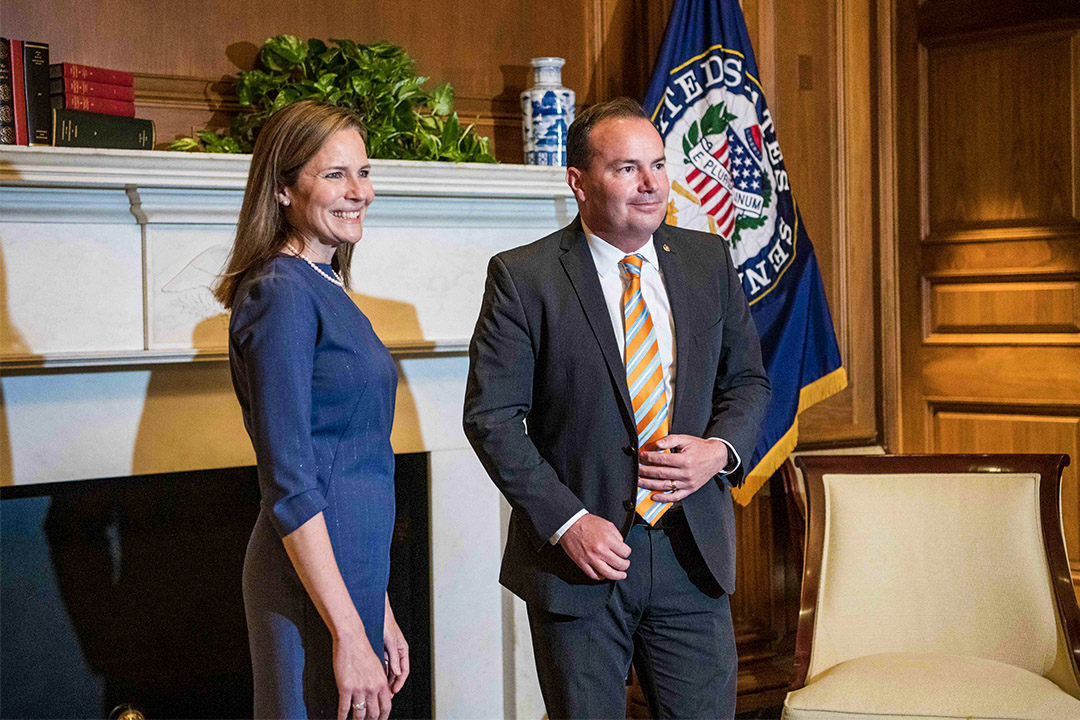
Sen. Mike Lee (R-Utah) poses with U.S. Supreme Court nominee Amy Coney Barrett as part of a meeting at his office at the U.S. Capitol in Washington, D.C., on September 29, 2020. Photo: Sen. Mike Lee
Sen. Mike Lee (R-Utah) announced he tested positive for COVID-19, the disease caused by the coronavirus, in a post on social media on October 2, 2020.
Following his positive diagnosis, Lee said he would isolate for a period of 10 days. That’s shorter than the 14 days recommended by the Centers for Disease Control and Prevention and health experts.
But Lee, a member of the Senate Committee on the Judiciary, explained why he is cutting his quarantine short. He said he needs to help the Republican majority in the U.S. Senate fill the vacant seat on the U.S. Supreme Court with a judge who lacks substantive experience in Indian law.
In his post, Lee said he assured Republican leaders that he will “be back to work in time to join my Judiciary Committee colleagues in advancing the Supreme Court nomination of Judge Amy Coney Barrett in the committee and then to the full Senate.”
— Mike Lee (@SenMikeLee) October 2, 2020
The confirmation hearing for Barrett starts on October 12. It is expected to last at three to four days, a schedule that Republican leaders are sticking to despite the recent developments surrounding President Donald Trump’s COVID-19 diagnosis and subsequent hospitalization.
In terms of membership, Republicans hold 12 seats on the legislative panel, while Democrats hold 10. Republicans will need every vote in order to overcome any Democratic opposition to Barrett’s nomination at the committee level.
Lee met with Barrett, who currently serves as a judge on the 7th Circuit Court of Appeals, on September 29. He also took part in the September 26 ceremony at the White House where Trump announced the nomination.
Besides Lee, several other attendees of the White House event have since tested positive for COVID-19.
I was remarkably impressed by Judge Barrett. My meeting with her was fantastic. She is a judge, a legal scholar, and a lawyer with outstanding credentials. We had a great conversation and I am very much looking forward to speaking with her more during her confirmation hearing. pic.twitter.com/rfGt717PlW
— Mike Lee (@SenMikeLee) September 29, 2020
A conservative Republican, Lee is best known for repeatedly blocking Indian Country legislation in the Senate. Tribal leaders, as well as fellow members of Congress, have confirmed he has held up the reauthorization of the Native American Housing Assistance and Self-Determination Act, also known as NAHASDA.
NAHASDA expired in 2013. Tribes and their advocates have been working to pass a new version of the landmark law, which helps fulfill the U.S. government trust and treaty obligations to provide adequate housing resources in Indian Country.
